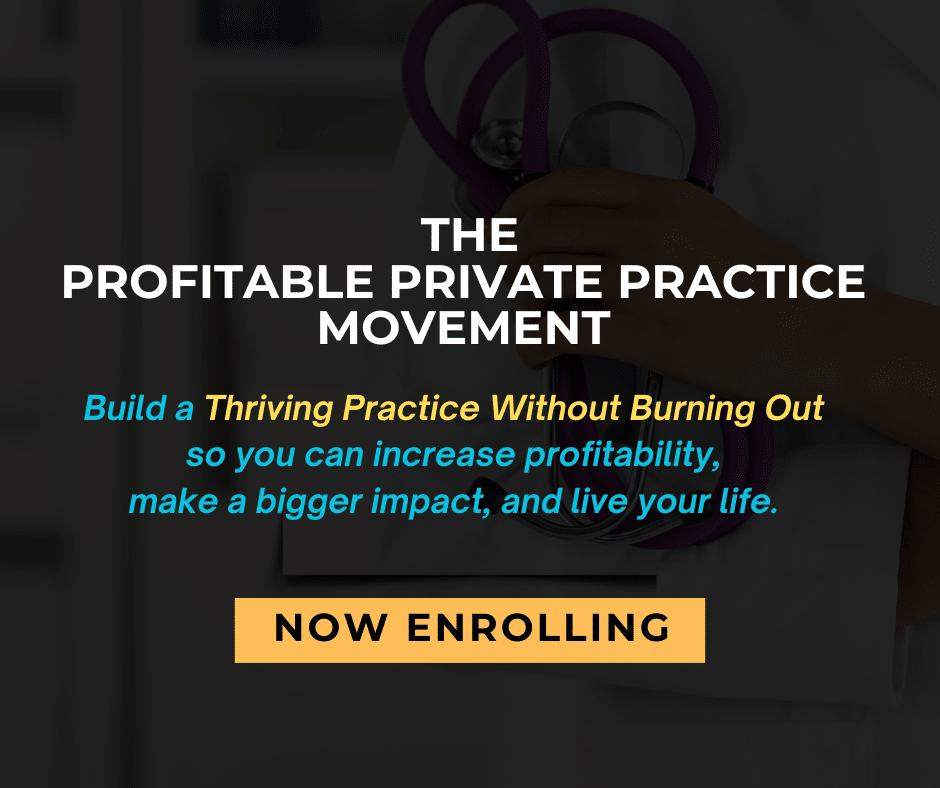A growing number of doctors and physicians are considering leaving the field or considering leaving their practices. Burnout is not a new story for the medical profession, but since the pandemic, physician burnout rates spiked to an all-time high by the end of 2021.
The AMA has developed an AMA Recovery Plan for America’s Physicians to create new solutions that recognize how, now more than ever, physicians require “support, system reforms, and burden reduction.”
“While burnout manifests in individuals, it originates in systems. Burnout is not the result of a deficiency in resiliency among physicians; rather, it is due to the systems in which physicians work.” – Christine Sinsky, MD. AMA’s Vice-President of Professional Satisfaction.
Their advocacy efforts are set in place to help doctors deal with key causes of burnout:
- President Biden signed the Dr. Lorna Breen Health Care Provider Protection Act into law because of the AMA’s advocacy.
- The association has worked relentlessly to reduce documentation burdens with more than 40 policies and 12 regulatory victories.
- Endorsed relief funding to help physicians adjust the admin requirements they’ve faced during the course of the pandemic.
The AMA Recovery Plan for America’s Physicians focuses on taking care of the nation’s physicians in five distinct categories:
- Fixing prior authorization
- Reforming Medicare payment
- Fighting scope creep
- Supporting telehealth
- Reducing physician burnout
For some, this may be too little, too late. Now that the extreme danger level of COVID-19 is lessening, it remains to be seen how many healthcare professionals will be willing or able to stay the course or how many will want or need to use their medical degrees in a non-clinical job.
Healthgrades for Professionals cites seven reasons why doctors and physicians are leaving their practices or considering quitting medicine altogether:
- Burnout
- Verbal abuse and bullying by their patients
- Not enough income
- Too many work hours at their family’s expense
- Dealing with electronic health records
- Too much bureaucracy
- A lack of autonomy
Are there ways to continue contributing to healthcare without the burden of dealing with abuse and bullying, being overworked and underpaid, and drowning in paperwork and bureaucracy?
It seems there is. The New England Journal of Medicine, in an article, “Outside the Fold: Exploring Non-Clinical Work Opportunities for Physicians,” claims there are “many kinds of non-clinical work available, and much of that work can be done on either a part-time or full-time basis.”
Misconceptions About Non-Clinical Jobs
It’s understandable why many doctors and physicians would be apprehensive about leaving the clinical setting and venturing into a non-clinical job. After all, when you’ve spent years of your life learning and training in the medical field, it can seem like a huge leap of faith to move away from that.

And there do seem to be some common misconceptions about non-clinical jobs for doctors and physicians. These include:
- Non-clinical jobs don’t pay as much as clinical ones. This is simply not true; many non-clinical roles offer competitive salaries, especially for those with experience in the medical field.
- You’ll have to give up your medical license or credentials. While some roles may require you to shift to a different type of credential, you won’t necessarily have to surrender your medical license.
- It’s impossible to use your medical knowledge and skills in non-clinical roles. This isn’t true either; many non-clinical positions require an in-depth understanding of the medical field, making them ideal for those who want to put their experience to use.
- You won’t be able to help others if you leave clinical medicine. On the contrary, non-clinical jobs still allow you to make a positive impact on people’s lives. For example, you could go into medical education, research, policy work, or health administration and make a difference in the lives of patients.
Non-clinical roles can offer a wide range of opportunities, both financially and in terms of personal fulfillment. With the right research and preparation, you can find the perfect role for you outside of the clinical setting.
The Biggest Mistakes
Before you dive into transitioning to non-clinical work, make sure to set yourself up for success by avoiding these five mistakes:
1. Not doing enough research: One of the biggest mistakes doctors and physicians make when transitioning to non-clinical work is not researching the roles and companies they’re interested in. They should research the organization’s mission, values, products and services, and competition to better understand the position and how they can best contribute.
2. Underestimating their skills: Many doctors and physicians may think that their clinical experience won’t transfer to other industries. However, this isn’t true. Skills like patient care, problem-solving, communication, and data analysis are all highly desirable and can be used in a variety of different contexts.

3. Not networking enough: When transitioning to non-clinical work, it’s important to network with other professionals who are already employed in the industry. They can provide invaluable insight into roles and valuable connections to help you land the job.
4. Failing to update their resume: Doctors and physicians need to make sure that their resume reflects their current skill set and experiences. This means removing outdated information, adding any new credentials or certifications, and emphasizing their transferable skills.
5. Not seeking out mentors: Mentors can provide invaluable advice, support, and guidance as doctors and physicians transition from clinical medicine to non-clinical work. It’s important to find a mentor who has already achieved success in the field you’re transitioning to and can help you navigate the process.
Non-Clinical Jobs for Doctors and Physicians
If you are considering a change from clinical to non-clinical medicine, it may be comforting to know that there are no shortages of job opportunities available. According to LinkedIn, currently, there are 15,000+ non-clinical physician jobs posted on Indeed’s job board.

This list of 50+ non-clinical jobs just scratches the surface of the opportunities that are available around the country.
Help change the healthcare system
The US Department of Health and Human Services (HHS) offers numerous jobs for doctors and physicians with different levels of training:
1. Government and public policy
2. Medical Officer
3. Public Health campaigner
4. Biomedical research
5. Epidemiology
6. Data analysis
7. Health policy analyst

8. Healthcare system compliance
9. Private consulting to government regulators
10. Specialty certification oversight
11. Specialty guideline development
12. Population health
13. Medical/ health statistics
14. Healthcare product development
15. Medical industry research
Work within the healthcare system
16. Medical Director
17. Chief Medical Officer (CMO)
18. Healthcare management consultant
19. Hospital Chief Executive Officer (CEO)
20. Chief Quality Officer (CQO)
21. Chief Legal Officer (CLO)
22. Chief Operating Officer (COO)
23. Chief Integration Officer (CIO)

24. Chief State Epidemiologist
25. Corporate Medical Director
26. Chief Medical Information Officer (CMIO)
27. Board of directors officer
28. Non-profit leadership
29. Healthcare insurance executive
Help support the healthcare system
30. Healthcare technology software development
31. Healthcare technology implementation
32. Telemedicine

33. Medical equipment development
34. Drug development
35. Drug safety and pharmacovigilance
36. Medical device inventor
37. Pharmaceutical/bio device marketing
38. Healthcare system marketing
39. Market share strategy consulting
40. Medical spokesperson
Be an expert
41. Physician coach
42. Medical journalism
43. Scientific and regulatory writing
44. Medical editor
45. Health/medical oversight board
46. Pharmaceutical/research writer
47. Healthcare/medical content author
48. Grant writing
49. Health and medical marketing/ communication

50. Expert witness
51. Medical-legal consulting
52. On-air health expert/ medical correspondent
53. Medical school educator
54. Educational material production — books, videos
55. Curriculum development
56. CME development
57. Medical illustrator and design
Begin the Journey
At this point in your career, you’ve also developed a better idea of your interests — what work you enjoy doing and what you find wearisome and difficult. As you consider transitioning to a non-clinical job, it’s helpful to identify specific types of work-related activities that don’t leave you feeling drained and depleted at the end of the day.
It’s worth spending some time writing down the aspects of clinical work you enjoy. On Look for Zebras’s website, Sylvie Stacy, MD, created a non-clinical careers quiz for physicians, which outlines seven potential areas of clinical work to jumpstart your own list:
- Thinking through pathophysiologic processes
- Solving diagnostic conundrums
- Performing procedures
- Seeing patients improve with treatment
- Forming relationships with patients
- Using electronic health records and decision support tools
- Teaching residents and medical students on clinical rotations
I recommend taking her quiz if you’re considering transitioning to a non-clinical job.
According to SEAKS’s 500+ Non-Clinical Career Job Posting Links, they’ve found numerous examples of physicians “who have been wildly successful in careers that really have little, if anything, to do with medicine.” They give examples of physicians who have transitioned their careers to non-clinical work in the following fields:
- ESPN sportscaster, Dr. Jerry Punch
- Fox News commentator and syndicated columnist, Dr. Charles Krauthammer
- CBS News reporter, Dr. Bon Arnot
- Physician actor, Dr. Ken Jeong
As a doctor or physician, you have an amazing set of skills that can be used to pursue a wide variety of non-clinical jobs. Many of these opportunities don’t require you to take on a lot of extra training and are relatively easy to transition into.
First, think about the types of tasks and activities you do every day in a clinical setting. Do you often teach classes? Help other physicians and staff with research? Make diagnoses? Create treatment plans? Review patient files? All of these skills can be used in a non-clinical environment.
How about your soft skills? Are you a good communicator with emotional intelligence that allows you to display tact and sensitivity? Perhaps you have natural problem-solving skills that help you gather clues and evidence about your patient’s health in order to work towards a diagnosis and solution.
Attention to detail is a soft skill every doctor must have, which will stand you in good stead when looking for a job in the non-clinical sector. Making final decisions is also a soft skill that is useful in work that requires you to oversee others and make tough calls.
Other valuable soft skills doctors and physicians have developed include professionalism, teamwork, and leadership skills, a capacity for learning new things, and resilience through the process.

Not every non-clinical job requires a full-time commitment, which allows you to consider straddling clinical and non-clinical fields. Specifically, work done in the “Expert” sector allows for more opportunities to set your own schedule and hours.
Physicians who still enjoy seeing patients but want to limit their hours to two or three days each week can supplement their income by becoming a physician coach, writer/communicator, expert witness, or consultant, just to name a few.
There are so many opportunities available for both full- and part-time non-clinical work that SEAK created a Non-Clinical Careers Conference 18 years ago. This year, the conference is scheduled for October 14-15 and will be held in Chicago, IL.
The conference’s focus is to “help physicians explore the number of non-clinical opportunities available to them.” Over 5,000 physicians have attended the conference, and many have “successfully transitioned to a full- or part-time non-clinical career.”
Combining clinical and non-clinical work may serve to give you the flexibility to choose the hours and amount of time you spend at work. It may also allow you to work from home outside of traditional work hours, which many find helps to manage family life.
While you may think non-clinical work will result in a pay cut, that’s not necessarily the case. Lisa Ho, MD, found that her mixed portfolio work as a Social Security disability consultant, nursing home reviewer, and Medicaid utilization management specialist does not pay less than her previous clinical work.
Several factors will come into play when gauging income potential in non-clinical work. How many years of experience someone has, their specialty, skill sets, and entrepreneurial ability will all determine earning potential in non-clinical work.
“Entry-level jobs in health insurance, utilization management, the pharmaceutical industry, and physician-advising pay between $160,000 and $300,000, but there can be considerable upside income potential as physicians advance.”
Moving Forward
In researching this article, I came across an article written by Michelle Mudge-Riley, DO, for KevinMD.com. I laughed when I read her say, “Yes, I spent hundreds of thousands of dollars on my education. My brain is probably worth more than my house.”
In her article, she talks about transitioning to a non-clinical career and what that has meant for her.

Here’s what she had to say:
“My career transition shaped my career path in a way I never, ever imagined. I went from feeling like I might be lazy because I hated going to work every day to making sure I have a pen and paper with me at all times to write down all my ideas and thoughts about my work.
I probably work 14 to 16-hour days now, but it doesn’t feel like work. I have an amazing family that I can spend time with, doing things like riding bikes or playing Monopoly. For me, career transition meant I got my life back, and I am able to positively influence new people every day just by living my life. You can, too.”
I agree.
As a medical doctor who grew my business by 748% in one year, I am passionate about helping doctors and physicians build profitable businesses so they can live life and practice medicine on their terms, whether that’s as a practicing clinician or working and contributing to patients’ well-being in a non-clinical setting.


